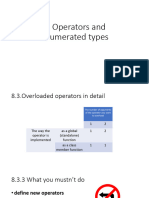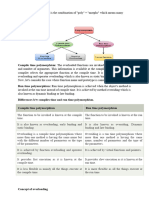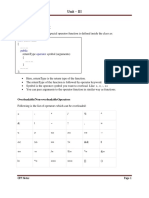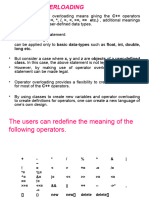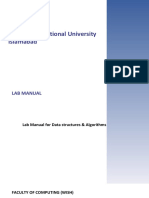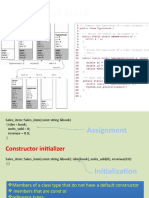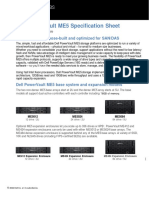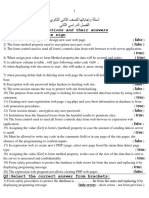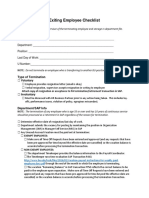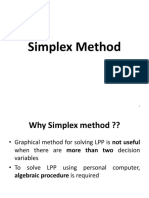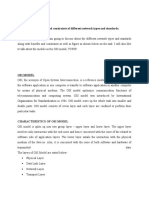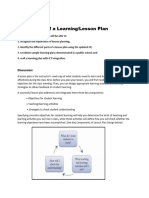0% found this document useful (0 votes)
86 views28 pagesLec6. Operator Overload
The document discusses overloading operators for a Money class. It defines operators like +, -, and == to work with Money objects. It also covers returning objects from functions and overloading unary operators like - to change the sign of a Money amount.
Uploaded by
Majd AL KawaasCopyright
© © All Rights Reserved
We take content rights seriously. If you suspect this is your content, claim it here.
Available Formats
Download as PPTX, PDF, TXT or read online on Scribd
0% found this document useful (0 votes)
86 views28 pagesLec6. Operator Overload
The document discusses overloading operators for a Money class. It defines operators like +, -, and == to work with Money objects. It also covers returning objects from functions and overloading unary operators like - to change the sign of a Money amount.
Uploaded by
Majd AL KawaasCopyright
© © All Rights Reserved
We take content rights seriously. If you suspect this is your content, claim it here.
Available Formats
Download as PPTX, PDF, TXT or read online on Scribd
/ 28






